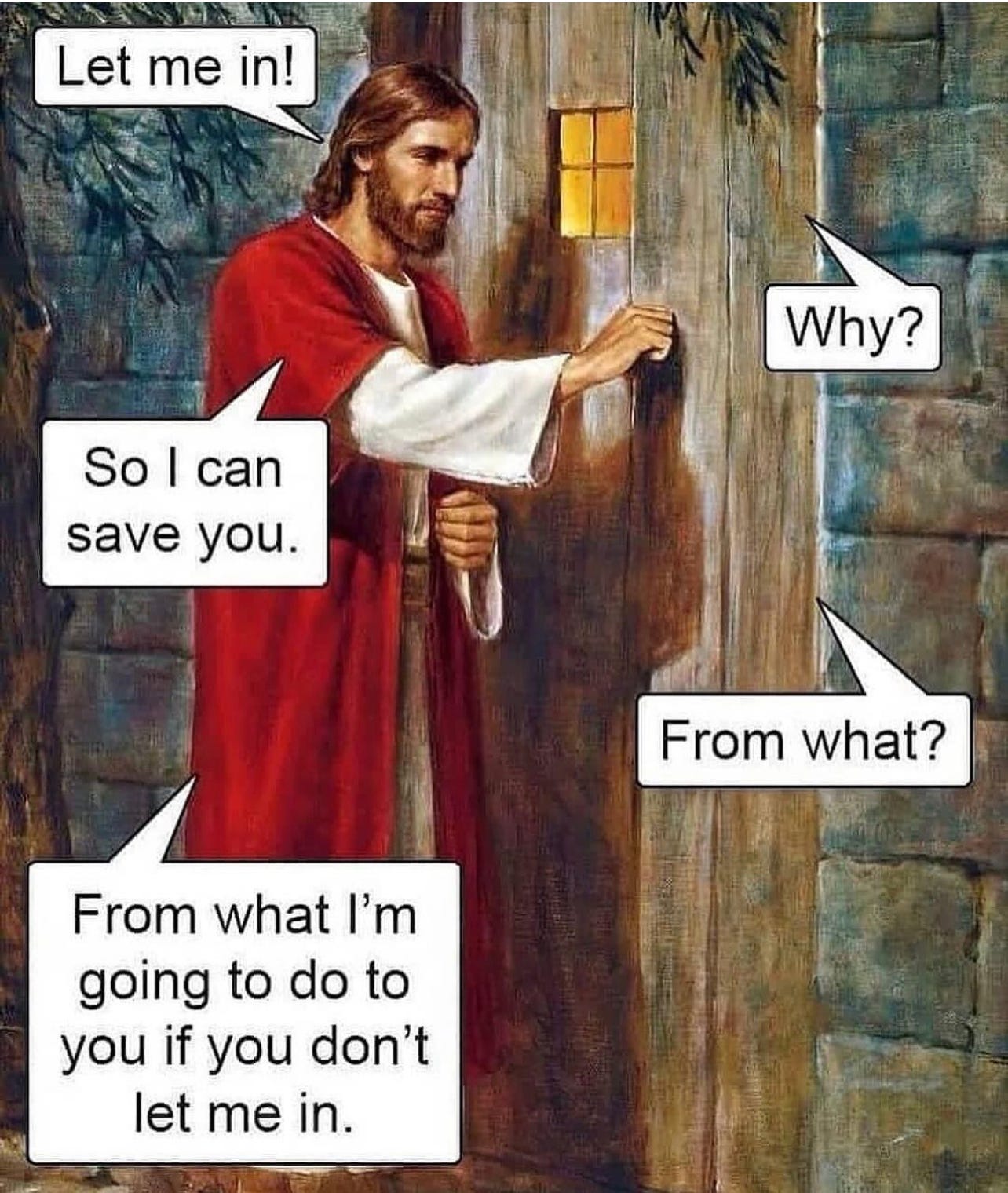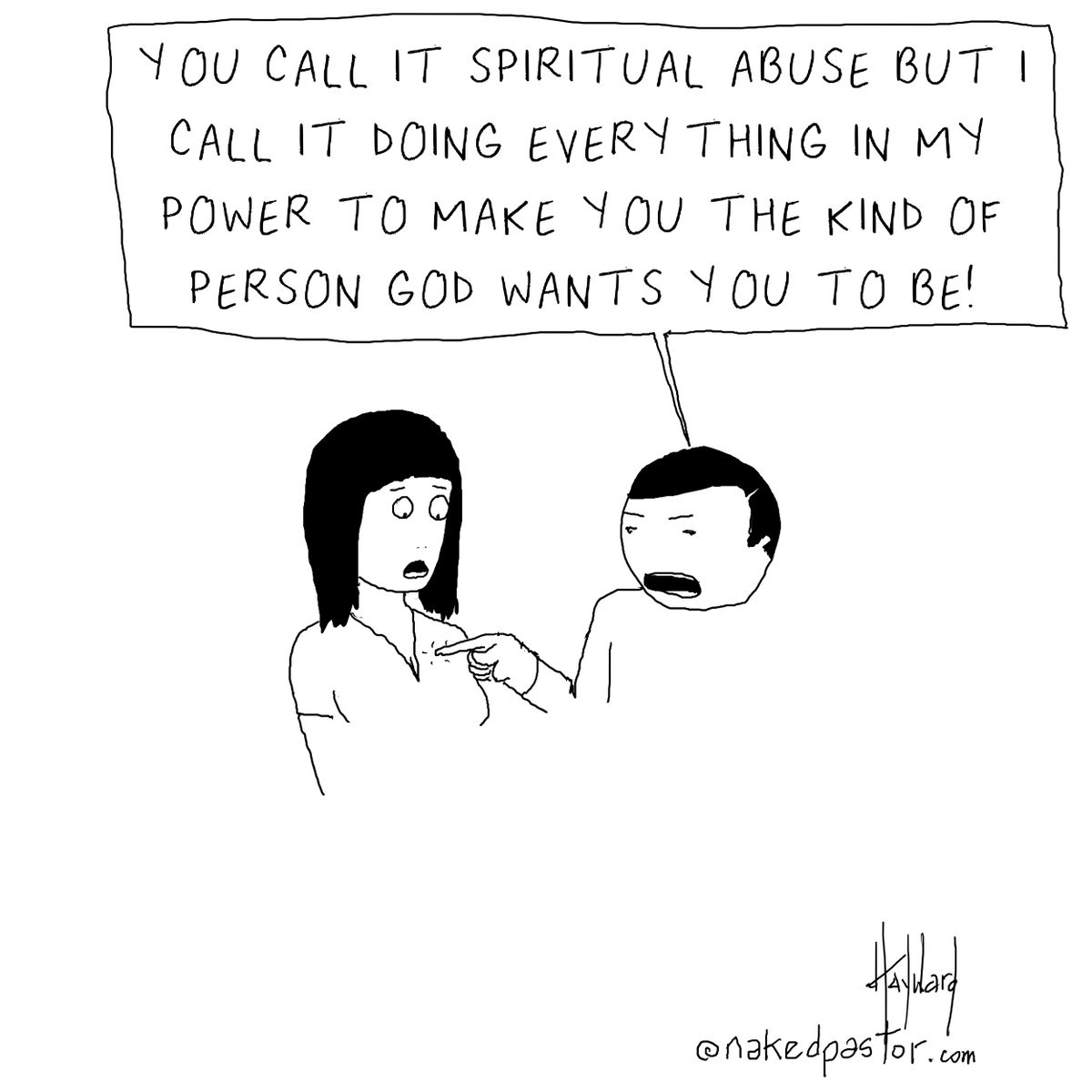A Preface: In so much of my writing, I’m sharing my sometimes ugly stories for a couple of reasons; 1) To help me seek understanding and healing of some things I’ve been through in my life, and, 2) To help others do the same, to help someone not feel so alone, to offer hope. So much of my life “I thought I was the only one” in a handful of ways. The pain of isolation is horrible, but the freedom and love uncovered through honesty-based community is super-duper worth the effort. Still, what I write today feels particularly raw. So here goes…

It’s intriguing to me that so many documentaries have been coming out recently that reveal a dangerous underbelly of abuse and control running rampant in many large religious organizations. Check out Amazon’s “Shiny Happy People” about the Duggar family and the influence of the Bill Gothard organization, or either of the Hillsong documentaries out on HBO or Hulu. “The Rise and Fall of Mars Hill” podcast was also very revealing, same with “The Way Down” doc about Gwen Shamblin’s diet-based church in Nashville.
It says to me that not only are these topics scintillating to the outsider, but that it’s also important to explore how some people have been doing ministry in abusive ways, with the goal of offering people a chance to work through some of their religion-induced trauma.
My journey out of high-control religion has been incredibly eye-opening and hope-blossoming. I can clearly see cult-like behavior influencing my thoughts and actions even from a young age. Most specifically, the “We have the right answer, and everyone else is going to burn in hell” mentality. And the “By the way, you better not mess up either, ‘cause even though we say you’re saved, you can actually lose your salvation by sinning. Which would be hell for you, too.”
It sounds so crazy to spell it out like this, but I’m sure many of you are nodding your heads in agreement that this was your experience, too. You’re not alone.
I was taught that most every part of me was bad, but by some kind of magic, my Creator still loves me unconditionally. But it’s not because of anything about me, I basically have the goodness of a worm, but it’s all about the goodness of God.
See how all of this is super confusing? Not to mention incredibly detrimental to a young person trying to wrangle basic identity issues! It can all feel like trying to crawl Mission: Impossible-style through a room filled with deadly lasers. Something a child (or person of any age!) should never have to do.
My understanding was that God created a horrific situation where we are all doomed, and then offered a way out—a way in, if you will. Glorious streets of gold in heaven, instead of pitchforks and lakes of fire where I’d burn for eternity. I couldn’t help but laugh at this cartoon, as it points out the lack of logic in so much of my religious upbringing…
Did God create me with the worthlessness of a worm? Or was I fearfully and wonderfully made to reflect the image of God? I was told both. But the major emphasis was on what a horrific sinner I was, destined for the fiery pit from the very second I was born. This led me to constant anxiety, wondering if I was being good enough, and then striving to be as good as possible (making sure everyone else saw me doing that, too!). It was an endless and exhausting performance-based quest for acceptance.
I’m happy that this isn’t the experience of everyone. But I believe it’s common enough, and important enough, to talk about to help people find healing and hope. To say that it is very possible that you weren’t crazy this whole time, but you were simply doing the best you could in a very fundamentally messed up structure.
Let me paint this another way…
Imagine if your spouse, partner, or friend constantly told you how worthless you were, that you had less value or goodness than a tiny bug, and that they can’t even stand to be in the same room as you. They can’t even come close to you because of what a horrible person you are. Then they say, “But I love you and I’m choosing to be with you, in spite of that. I’ll always be right here, simply because of how good I am.”
You see how this all makes me want to vomit? Sorry, I’m not done.
Once you accept that first part, that your partner is an insane narcissist, you then find out they have also created a long list of things for you to do and not to do, in order to keep them happy and sticking around. And to prevent you from eternal punishment in a lake of fire.
If you were my friend, I’d immediately tell you to RUN AWAY FROM THIS PERSON AS FAST AS YOU CAN to get yourself out of that horribly abusive relationship.
This is what religion can look like. But it doesn’t have to.
Where Does This Leave Us?
In college, I first discovered there are people who have a relationship with God that doesn’t include this negative, abusive structure, and it was very attractive. I found them in denominations that I was always told were “not Christian enough" and “still probably going to hell.” They were beautiful because of their grace for themselves and love for other people and I wanted to hang out with them and eat at their potlucks. People who had a simple faith in God, understanding God’s love for all of creation, as well as a great desire to share that love with the world, through words and action.
It’s been a bumpy journey ever since then to discover for myself that I get to decide what kind of relationship with God I can have. This is what it means to have a “personal relationship” with God. I’m so at peace with it all right now, and I desire the same for you.
For those who choose to remain in high-control religion systems, people who “escape” and find other ways to believe are often criticized for falling away from the faith, for becoming apostates, blasphemers, serpents, sheep in wolves clothing… you get the picture. Yes, all things I’ve been called.
I’m sure you know I’m Pro-love. Like, seriously, we need a love revolution where we truly learn how to comfort and care for each other. This is rooted in my understanding of the teachings of Jesus, that his greatest command was to love one another. If I’m dismissed by some for trying to do what I believe Jesus is asking me to do, then I’m good with it.
Because of my focus on loving people, my lack of focusing on sin, and absolute relinquishing of my desire to change people to be like I think they should be, I’ve had all kinds of things said about me. And honestly, it hurts because I have a soft heart. But it doesn’t surprise me, unfortunately. I used to be one of those people.
Here’s another one that made me chuckle, and then recoil a bit because I saw my past self in it…
Still…
I remain committed to loving people in ways that they feel loved, without any agenda. And I no longer have any desire to convert anybody to accept my particular beliefs. This makes me a compassionate human being, in my opinion, and I’m super proud of that.
There is great hope in believing that God made you and I incredibly beautiful and unique, equipped to do some really cool things, but mostly, we were designed to love each other with great compassion.
People are leaving the church not because they discovered Jesus and found him lacking, but they’re leaving because they didn’t find Jesus in the church at all, instead, they witnessed corruption, lies, abuse, and politics.
Let’s see if we can do something about that.






Mark: Really like this piece. And, sadly, for many, it's an all-too-common experience. Thankfully, I really haven't suffered through it like you have. And it's a sad fact that there are too many churches like this in America. No church is perfect, but this came to me just yesterday. A good way to assess a church and whether it will provide a safe environment, I think, revolves around these three things:
1. Does the church put Jesus as the Conquering Hero of the faith and show that he accepts you as you are? If not, go somewhere else.
2. How often do you hear the word "self-righteous" and its variants in the weekly message? Not as an exhortation to be, but as a warning NOT to be. I'd say once every two weeks. Preferably every week. Don't hear it after two visits? Run.
3. Does a collection plate get passed? This should be a thing of the past, and a physical plate passed down the rows makes people give out of compunction. There is too much technology available today for people to give electronically and at their leisure. At the very least, a church ought to have a giving box (more than one) where people can put in their tithes and offerings.
Amén! Ugh, I can really relate to this! Good job doing the work and sharing it with others. 😊